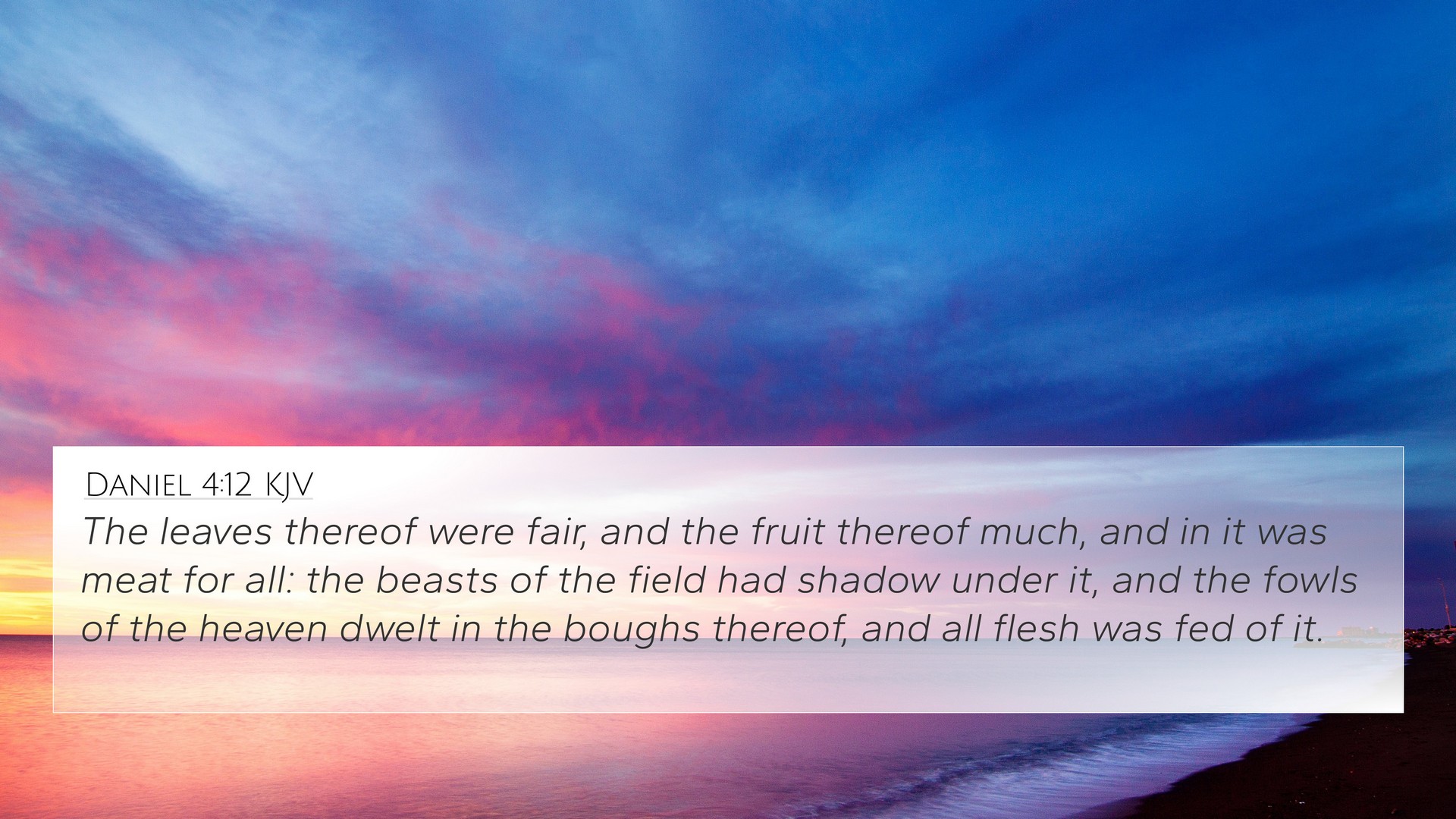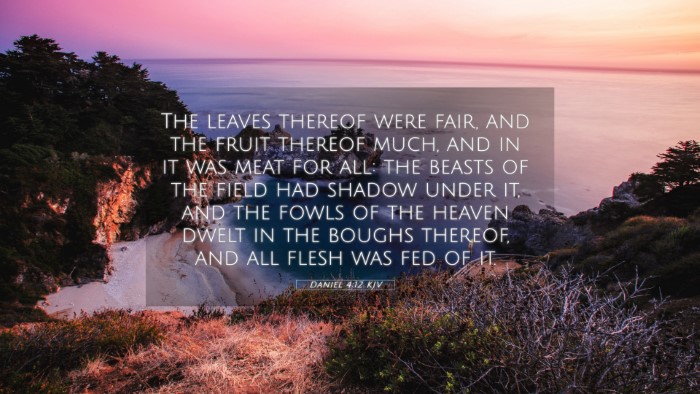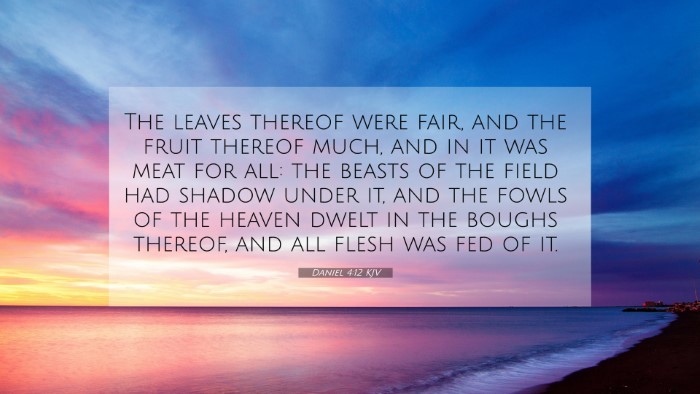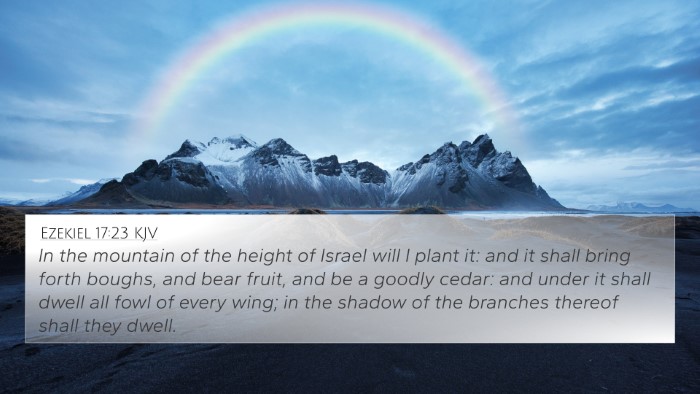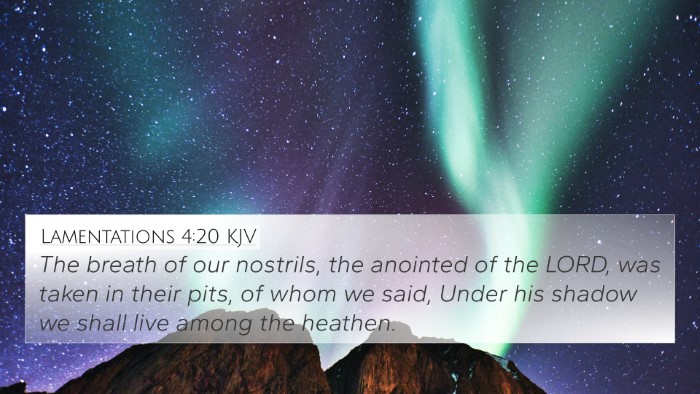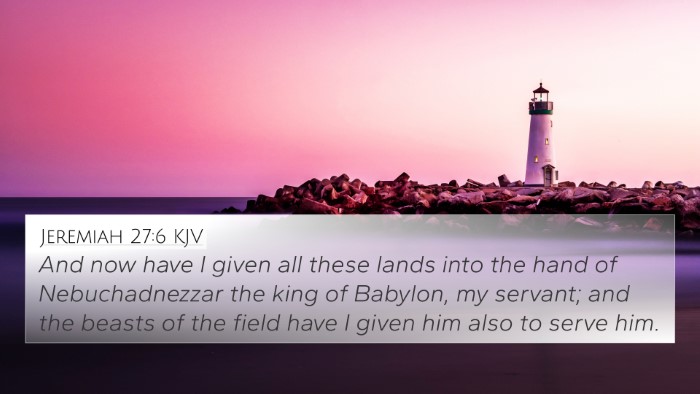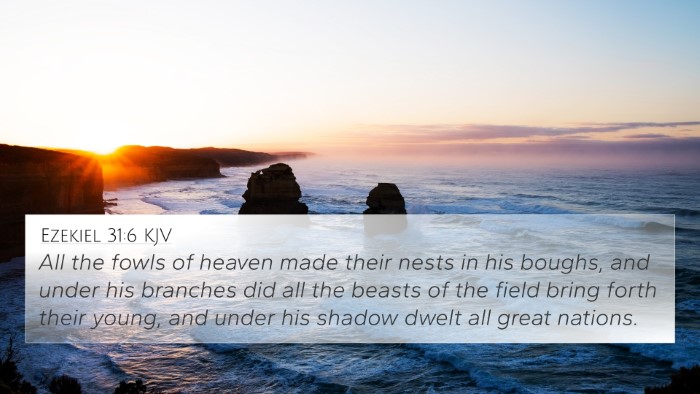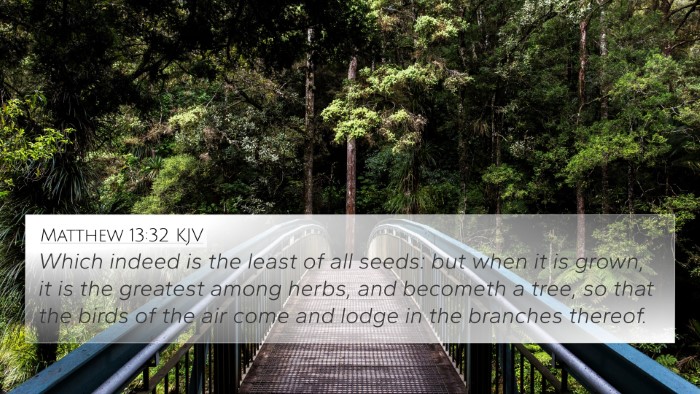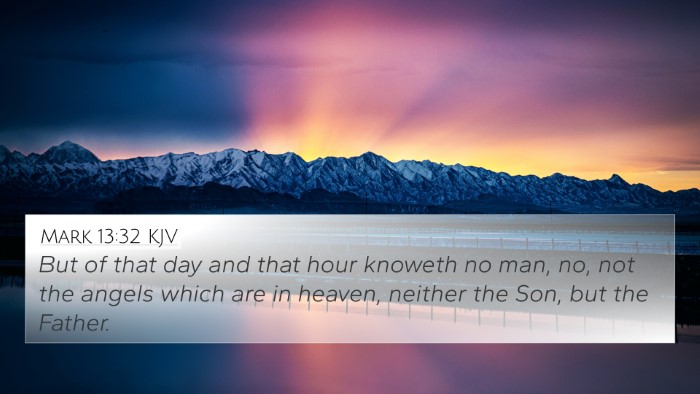Old Testament
Genesis Exodus Leviticus Numbers Deuteronomy Joshua Judges Ruth 1 Samuel 2 Samuel 1 Kings 2 Kings 1 Chronicles 2 Chronicles Ezra Nehemiah Esther Job Psalms Proverbs Ecclesiastes Song of Solomon Isaiah Jeremiah Lamentations Ezekiel Daniel Hosea Joel Amos Obadiah Jonah Micah Nahum Habakkuk Zephaniah Haggai Zechariah MalachiVerse
Daniel 4:1 Daniel 4:2 Daniel 4:3 Daniel 4:4 Daniel 4:5 Daniel 4:6 Daniel 4:7 Daniel 4:8 Daniel 4:9 Daniel 4:10 Daniel 4:11 Daniel 4:12 Daniel 4:13 Daniel 4:14 Daniel 4:15 Daniel 4:16 Daniel 4:17 Daniel 4:18 Daniel 4:19 Daniel 4:20 Daniel 4:21 Daniel 4:22 Daniel 4:23 Daniel 4:24 Daniel 4:25 Daniel 4:26 Daniel 4:27 Daniel 4:28 Daniel 4:29 Daniel 4:30 Daniel 4:31 Daniel 4:32 Daniel 4:33 Daniel 4:34 Daniel 4:35 Daniel 4:36 Daniel 4:37